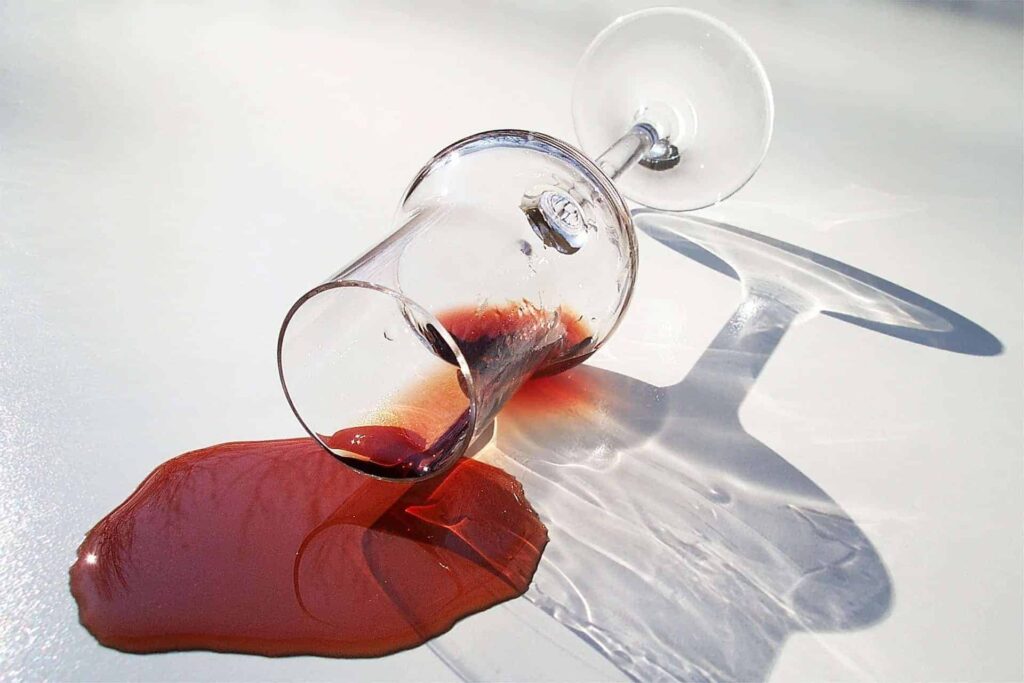In a world where social gatherings, celebrations, and even everyday stresses often revolve around alcohol, it’s easy for our consumption to creep up without us even noticing. However, taking a step back and reevaluating our relationship with alcohol can lead to numerous benefits for both our physical and mental well-being. Whether you’re aiming to cut back for health reasons, to save money, or simply to regain control over your habits, this guide will provide you with practical tips and insights into reducing alcohol consumption.
Contents
Importance of Reducing Alcohol Consumption
 Reducing alcohol consumption can have significant benefits for both physical and mental health. Here are some important reasons why it’s beneficial:
Reducing alcohol consumption can have significant benefits for both physical and mental health. Here are some important reasons why it’s beneficial:
- Improved Physical Health
Excessive alcohol consumption is linked to a range of health problems, including liver disease, cardiovascular issues, and certain types of cancer. By reducing alcohol intake, you can lower your risk of developing these serious health conditions and improve your overall physical well-being.
- Better Mental Health
Alcohol can affect mood and exacerbate symptoms of anxiety and depression. Cutting back on alcohol can lead to improved mental clarity, reduced feelings of stress and anxiety, and better overall emotional well-being.
- Enhanced Sleep Quality
While alcohol may initially help you fall asleep, it can disrupt the quality of your sleep cycles, leading to poor sleep quality and fatigue. Reducing alcohol consumption can result in better sleep patterns and increased energy levels during the day.
- Financial Savings
Alcohol can be expensive, especially when consumed regularly. Cutting back on alcohol consumption can save you money that can be allocated towards other priorities or activities.
- Improved Relationships
Excessive drinking can strain relationships with friends, family, and romantic partners. By reducing alcohol consumption, you may find that your interpersonal relationships improve as you are more present, engaged, and emotionally available.
- Personal Empowerment
Taking control of your alcohol consumption can empower you to make healthier choices and regain control over your life. It allows you to be more mindful and intentional about your actions. Hence, leading to a greater sense of self-efficacy and well-being.
Overall, reducing alcohol consumption can lead to numerous physical, mental, social, and financial benefits, ultimately contributing to a healthier and more fulfilling lifestyle.
Strategies For Reducing Alcohol Consumption
 Reducing alcohol consumption can be challenging, but with the right strategies and mindset, it’s achievable. Here are some tips to help you cut back on drinking:
Reducing alcohol consumption can be challenging, but with the right strategies and mindset, it’s achievable. Here are some tips to help you cut back on drinking:
Set Clear Goals
Take some time to reflect on why you want to reduce your alcohol consumption. Are you concerned about your health, interested in saving money, or motivated by personal growth? Setting specific, measurable goals will provide you with a clear direction and help you stay focused on your intentions.
Know Your Limits
Educate yourself about what constitutes moderate drinking and how it applies to you based on factors like age, gender, weight, and overall health. Understanding your limits will prevent you from inadvertently exceeding recommended guidelines and experiencing negative consequences.
Track Your Consumption
Keep a journal or use a tracking app to monitor how much alcohol you consume each day. Note the circumstances surrounding your drinking, such as your mood, location, and who you were with. This awareness can reveal patterns and triggers that contribute to excessive drinking, empowering you to make informed changes.
Set Boundaries
Establish clear boundaries for yourself regarding when, where, and how much you’ll drink. Consider creating a personalized drinking plan that outlines specific rules and guidelines to follow, such as limiting drinking to certain days of the week or setting a maximum number of drinks per occasion.
Plan Ahead
Anticipate situations where you might be tempted to drink and develop strategies to avoid or manage them. If you’re attending a social event, decide in advance how many drinks you’ll have and alternate alcoholic beverages with water or other non-alcoholic options to pace yourself.
Practice Saying No
It’s essential to assertively decline alcohol when offered, especially if you’re committed to reducing your consumption. Practice polite yet firm responses to offers of alcohol, such as “No, thank you, I’m taking a break from drinking,” or “I’m driving tonight, so I’ll stick with water.”
Find Alternatives
Explore a variety of non-alcoholic beverages that appeal to your tastes and preferences. Stock your fridge with options like alcohol-free beer, sparkling water, herbal teas, or fruit-infused drinks to enjoy as satisfying alternatives to alcoholic beverages.
Stay Busy
Fill your schedule with activities and hobbies that don’t revolve around alcohol. Engage in physical exercise, pursue creative interests, or spend quality time with loved ones who support your decision to drink less. Keeping yourself occupied will reduce idle moments where you might be tempted to drink out of boredom or habit.
Seek Support
Don’t hesitate to reach out to friends, family, or support groups for encouragement and guidance. Share your goals with trusted individuals who can offer understanding, motivation, and accountability as you navigate the challenges of cutting back on alcohol. Professional support from a therapist or counselor can also be beneficial if you’re struggling to make changes on your own.
Celebrate Progress
Acknowledge and celebrate your achievements, no matter how small. Each day, week, or month without excessive drinking is a milestone worth commemorating. Treat yourself to rewards or indulgences that reinforce your positive behaviors and inspire you to continue on your journey toward healthier habits.
Be Patient and Kind to Yourself
Changing habits takes time and effort, and setbacks are a natural part of the process. Be patient with yourself as you navigate the ups and downs of reducing alcohol consumption. Treat yourself with compassion and understanding, and remember that every step forward, no matter how small, is a step in the right direction. Focus on progress, not perfection, and trust in your ability to create positive change in your life.
By incorporating these tips into your daily routine and staying committed to your goals, you can successfully reduce your alcohol consumption and enjoy the many benefits of a healthier lifestyle.
What Foods Reduce Alcohol In The Body?
While there’s no specific food that can eliminate alcohol from the body, certain foods can help alleviate some of the symptoms associated with alcohol consumption and support overall health. Here are some examples:
- Electrolyte-Rich Foods: Foods rich in electrolytes, such as bananas, coconut water, and leafy greens, can help replenish electrolyte levels and combat dehydration caused by alcohol.
- Complex Carbohydrates: Foods high in complex carbohydrates, such as whole grains, fruits, and vegetables, can help stabilize blood sugar levels and provide sustained energy. This may help mitigate the effects of alcohol-induced fluctuations in blood sugar.
- Protein-Rich Foods: Consuming protein-rich foods like lean meats, fish, tofu, and legumes can help support liver function and promote the metabolism of alcohol in the body.
- Healthy Fats: Incorporating healthy fats from sources like avocados, nuts, seeds, and olive oil can help slow the absorption of alcohol into the bloodstream and support overall liver health.
- Foods Rich in B Vitamins: Alcohol consumption can deplete B vitamins in the body. So consuming foods rich in B vitamins, such as leafy greens, whole grains, eggs, and dairy products, can help replenish these nutrients and support cellular function.
- Fruits and Vegetables: Eating a variety of fruits and vegetables provides essential vitamins, minerals, and antioxidants that support overall health and may help mitigate the oxidative stress caused by alcohol consumption.
So, these foods can help support the body’s natural detoxification processes and alleviate some of the effects of alcohol consumption. However, it’s important to remember that the best way to reduce the negative impact of alcohol is to drink in moderation or abstain altogether.
How Much Alcohol Is Safe To Drink Daily?
 The definition of “safe” alcohol consumption can vary depending on factors such as age, gender, overall health, and individual tolerance. However, health organizations typically provide general guidelines for moderate drinking. This is considered to be safe for most adults.
The definition of “safe” alcohol consumption can vary depending on factors such as age, gender, overall health, and individual tolerance. However, health organizations typically provide general guidelines for moderate drinking. This is considered to be safe for most adults.
According to the Centers for Disease Control and Prevention (CDC) and other health authorities, moderate drinking is defined as:
- Up to one drink per day for women
- Up to two drinks per day for men
It’s important to note that these guidelines refer to standard drink sizes, which contain a specific amount of alcohol. In the United States, a standard drink typically contains about 14 grams of pure alcohol, equivalent to:
- 12 ounces of beer (about 5% alcohol by volume)
- 5 ounces of wine (about 12% alcohol by volume)
- 1.5 ounces of distilled spirits or liquor (about 40% alcohol by volume)
It’s also crucial to recognize that even moderate alcohol consumption carries some health risks, particularly for certain individuals or in specific circumstances. For example, pregnant women, individuals with certain medical conditions or medications, and those with a history of alcohol addiction should avoid alcohol entirely.
Ultimately, the safest approach to alcohol consumption is to drink in moderation, if at all, and to be mindful of individual factors that may influence your risk. If you have any concerns about your alcohol consumption or its effects on your health, it’s advisable to consult with a healthcare professional.
Conclusion
In conclusion, reducing alcohol consumption can lead to numerous benefits for both physical and mental well-being. By setting clear goals, tracking your consumption, and implementing strategies such as planning and seeking support, you can successfully cut back on alcohol intake.
Remember to be patient and kind to yourself throughout the process, celebrating progress and acknowledging that change takes time. Whether motivated by health concerns, financial savings, or personal growth, taking steps to drink less can empower you to lead a healthier and more fulfilling life.
